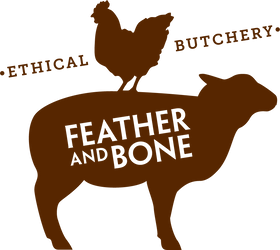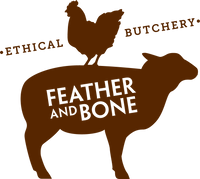SLAUGHTER: ONE BAD DAY
Every attempt is made by our producers to practice low stress handling throughout the growth cycle and during the transport and processing of their animals. At our end, our committment to only buying whole animals means we are able to scrutinise every carcass and maintain a high level of quality control.
Occasionally errant abattoir and/or transport practices can undermine the best practice of the producers and this will be reflected in the quality of the meat. We strive to minimise this through close liaison with transport and processing facilities.
Slaughter is the subject that seems to preoccupy and concern people out there more than any other. We field plenty of calls and emails asking about what we do and how we do it but the question ‘how are your animals killed?’ is by far the most common.
If you’re thoughtful enough to reflect on the provenance of the meat and poultry you eat, the fact that you’re in some way complicit in the killing of an animal will have occurred to you. This can be an uncomfortable fact for everyone involved, from the producer to the consumer, and it raises all sorts of issues including one’s own mortality.
We think that it’s understandable and proper for us to feel some remorse about taking another life.
It’s incumbent upon us to be as mindful as possible of the implications of the choices we make. But we do sometimes wonder why some people are more concerned by the death event than they are by the weeks, months or years of the animal’s life leading up to that moment.
The abattoirs we deal with
We purchase animals directly from the farmer which means that the animals have one stop before they arrive at our factory as carcasses. These days, since the demise of the local abattoir in each regional centre and the consolidation of the industry, the choice of abattoir is largely determined by distance. The closer the facility, the better the situation for the farmer and the animals because, if the abattoir is too far away, the cost and impact become prohibitive. This is particularly so for smaller operations such as most of the farmers with whom we work and this scarcity of options puts the abattoirs in a powerful position in relation to small producers.
At their end, the farmers we represent work very hard to establish and maintain good relations with their abattoirs. Our job is to ensure that we carefully scrutinise each body that arrives to ensure that the slaughter and transport matches the high standards set by the growers. If we see anything awry, we contact the farmer immediately and they then discuss it with the abattoir.
Australian abattoirs are well-regulated to a high standard and it's rare for us to find any issues.
The abattoirs from which we receive carcasses include:
- Cowra
- Eversons
- Wollondilly
- Nyngan




